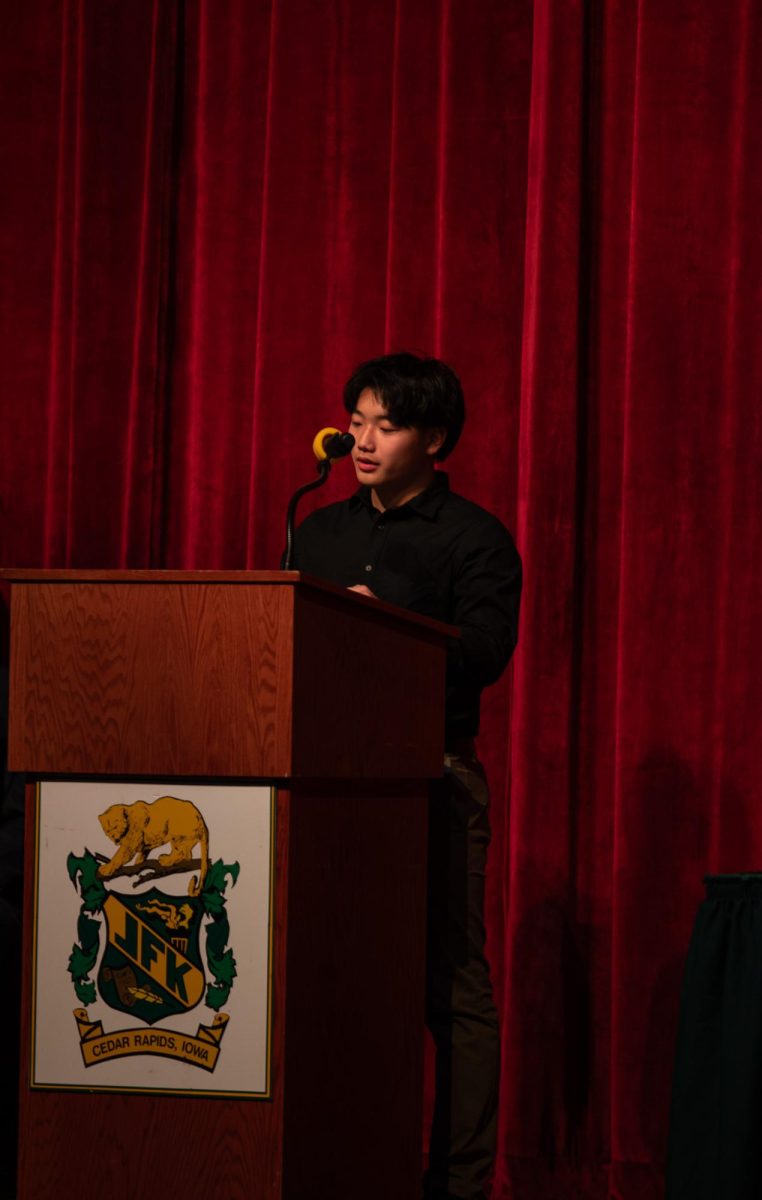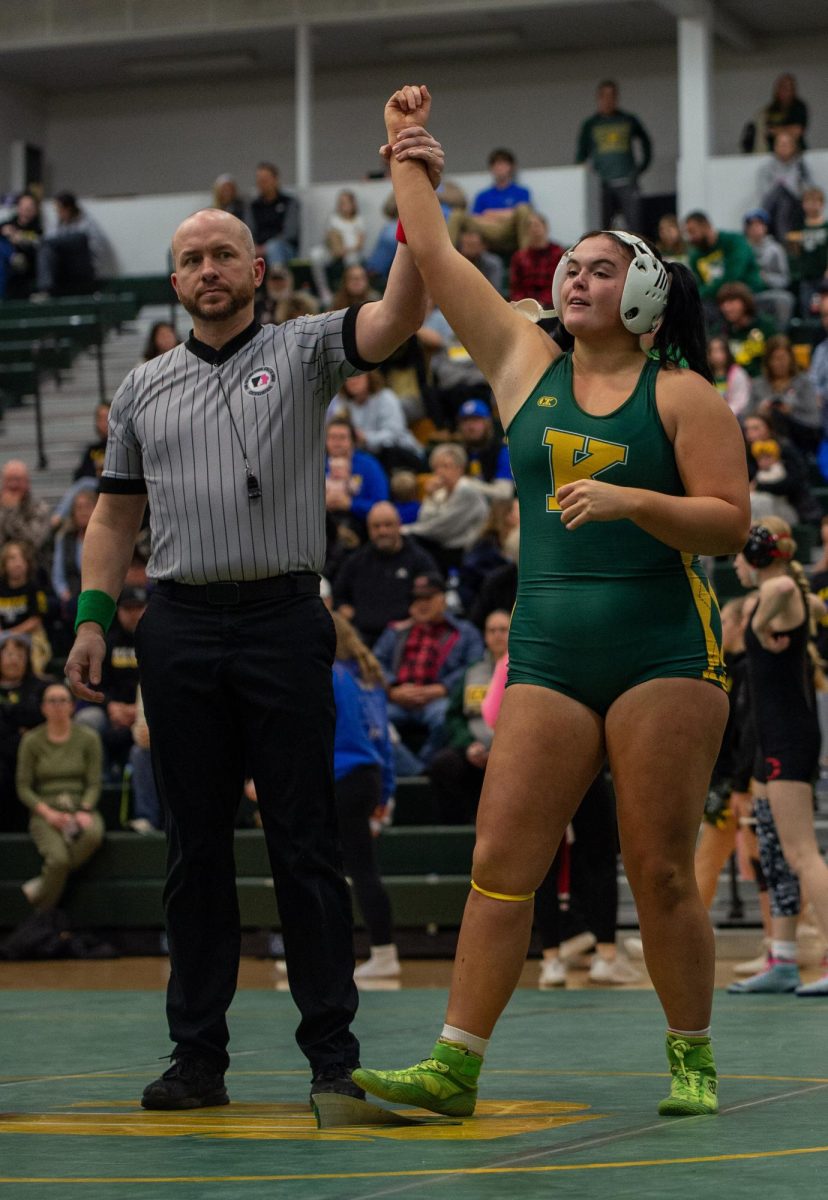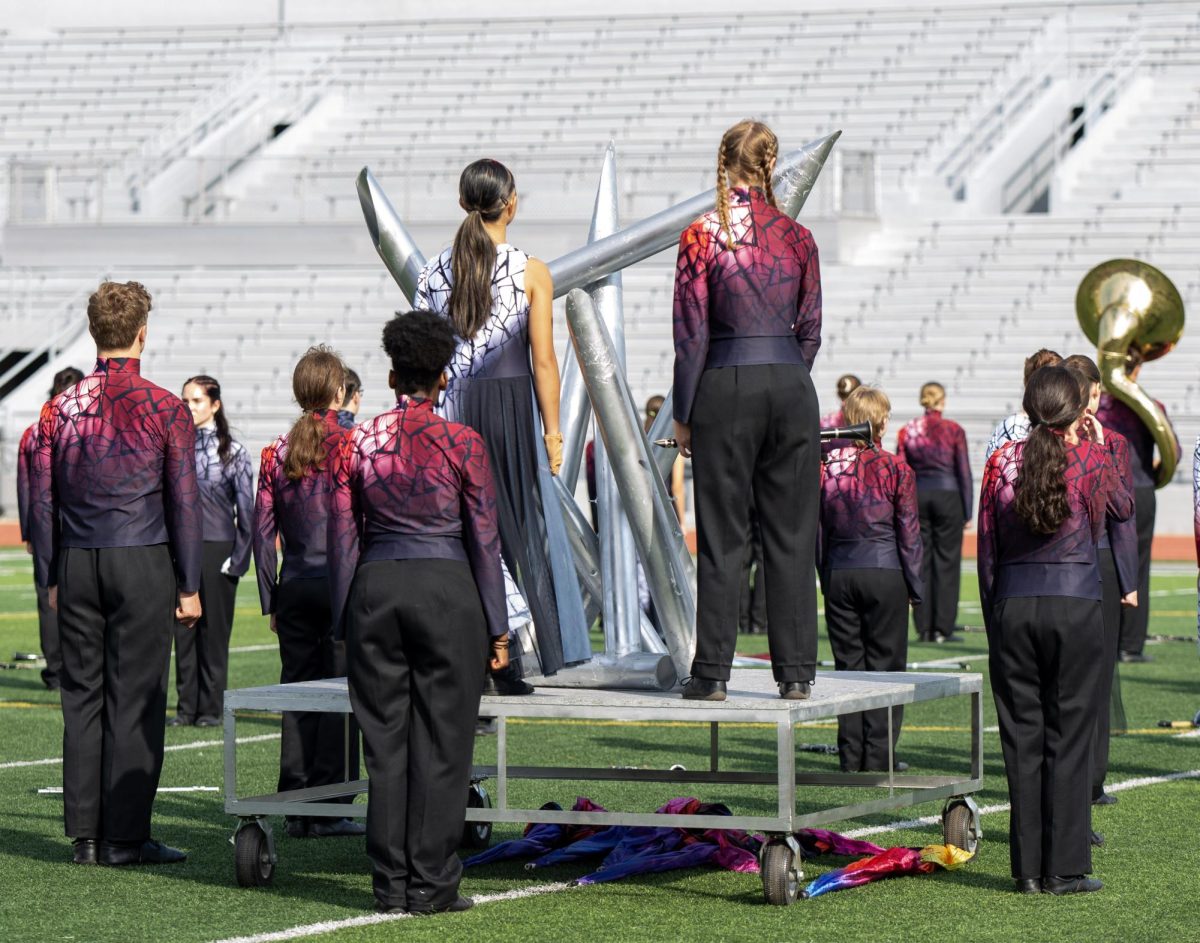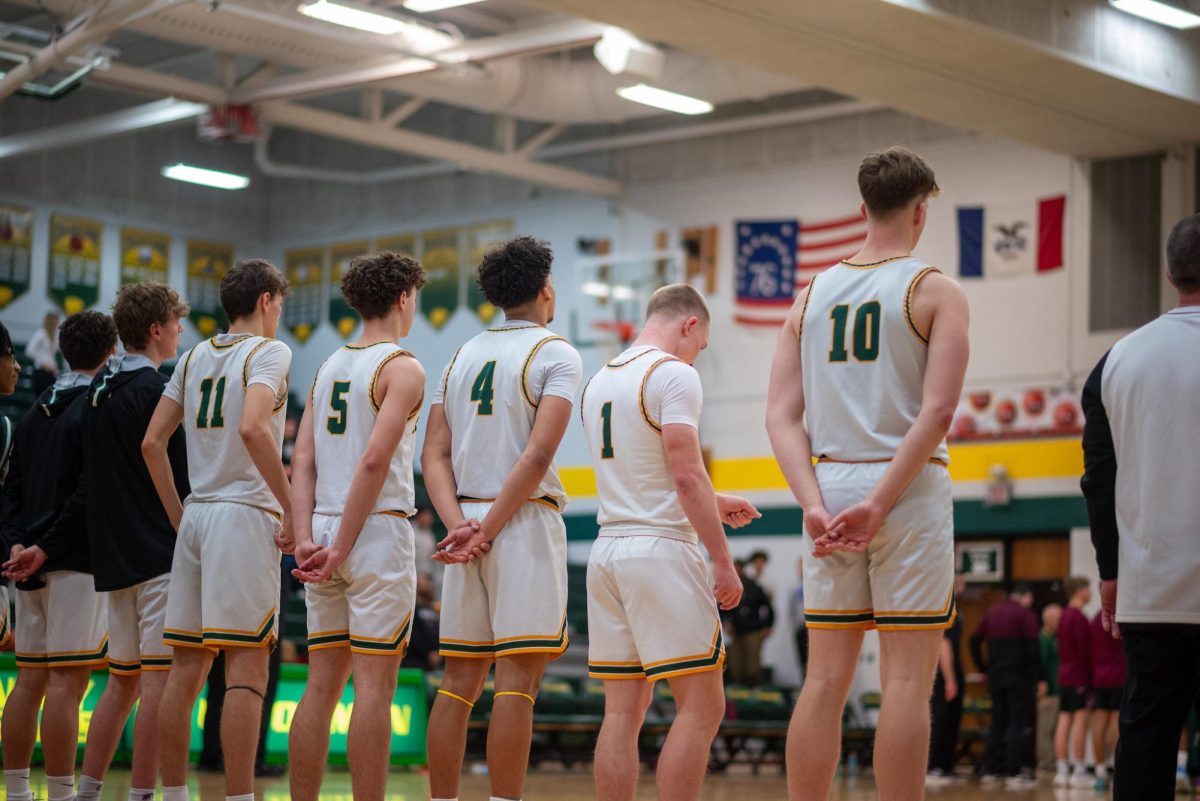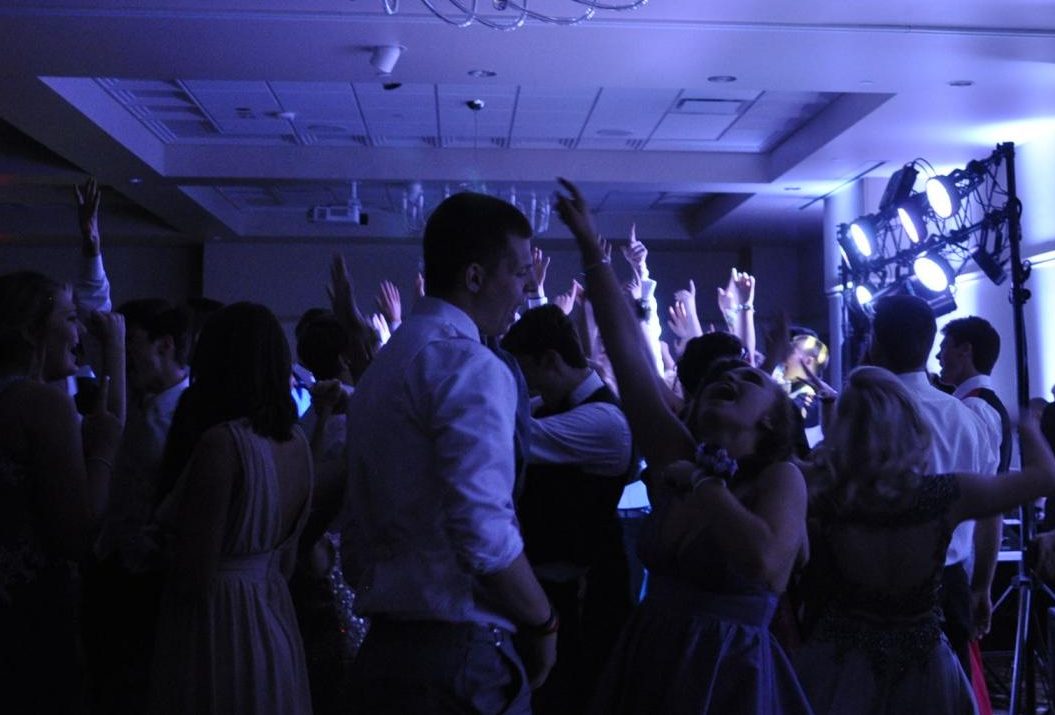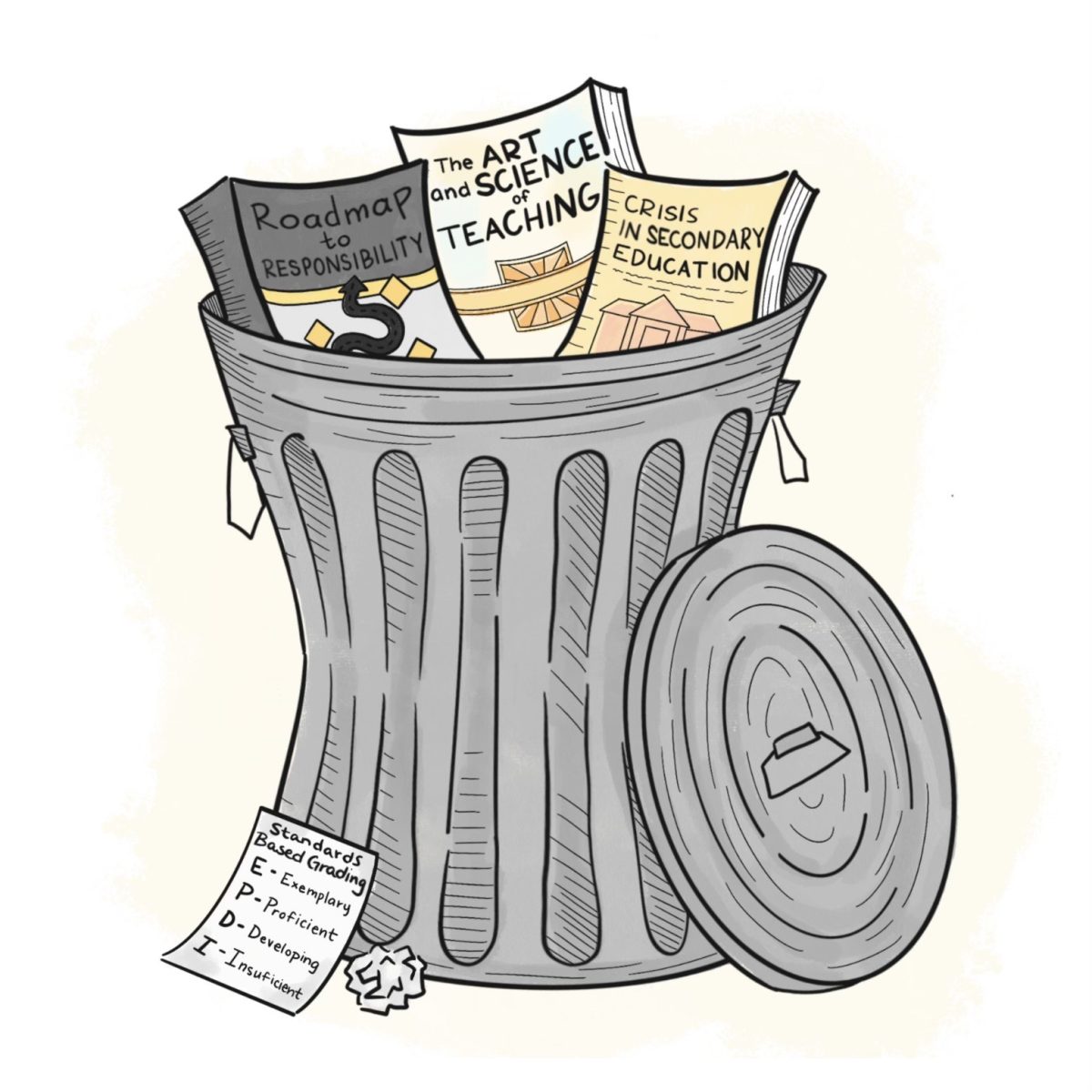Changes to the student handbook often go unnoticed, skipped over in a rush to prepare for the start of the year. Kennedy High School’s change in policy regarding admittance to school dances has left students panicking as, for the first time in school history, a single F threatens to keep them from a dance.
Kennedy High School student handbooks are sent out to families at the beginning of every year, and this year, there are more than a few changes of note. Students must be in good standing to attend any school-sponsored dance and as of 2024, the definition of “good standing” has changed. Any student with a failing grade the week before a school dance will be denied admission and permission to attend other schools’ dances.
“We get all these requests from other schools asking if the student is in good standing,” Kennedy Principal Jason Kline said. “By any other school’s definition, they probably wouldn’t be, but by ours, they were because they weren’t suspended, so that got us thinking about it. It was very arbitrary.”
Other Cedar Rapids Community School District high schools implemented similar policies years ago. Washington High School has a clause requiring five or fewer tardies, but allows for one failing class while Jefferson High School’s is similar but applies to all school-sponsored activities.
“Washington and Jefferson had policies for years, we did not,” Kline said. “Our policy was only that if you were currently suspended, you could not attend. Last year, we decided to have something similar to the other schools. We wanted to have a little something that would motivate students to stay in line and avoid suspension, avoid detentions and of course keep grades up.”
The new policy seemed to come out of nowhere, taking those who did not flip through the handbook by surprise. Kennedy students are required to have passing grades in all classes the week before homecoming. With the student body learning this only days before the cutoff, kids were left rushing to communicate with teachers and make up missing assignments.
“I don’t understand why this wasn’t brought up or mentioned long before,” senior Lara Secl said. “If students had been given three or four weeks, that would give us plenty of time to correct the grades and speak with our teachers. Most of us didn’t even have the chance to ask for alternatives. The first time I had heard of this policy was two weeks ago. That was a week before I was scheduled to attend a week-long education opportunity.”
CRCSD’s new attendance policy prevents students from making up homework assignments or tests from the day of an unexcused absence for credit. Students missing one day of class without being called out can result in a zero that leads to a failing grade.
“This policy screwed tons of us over,” Secl said. “The AP students who tested one time and failed the first test of the year? The kids who missed school? Students who have classes with teachers that grade on a unique grading schedule? I work hard, and work to be the best student I can be and thanks to this new policy, none of that matters.”
Homecoming takes place in mid-September, this year occurring on Sept. 27, about one month after the school year officially begins. It is impossible to have an accurate depiction of a student’s performance in such a short amount of time.
“If a semester starts with a new unit, then it takes some time for a quiz or other score to make it into Infinite Campus,” French teacher Jennifer Lange said. “If a student earns a bad score on the very first quiz, it can bring down the overall grade. [Eventually], the worst quiz score is balanced by the others. That’s not going to happen in my classes within the first seven weeks of school. I don’t want to have to give an ‘easy’ quiz just to help kids raise grades to passing so they can attend a dance.”
Kennedy does not use a standardized grading system, meaning all teachers are left to grade the way they see fit. Some score using a traditional “A, B, C” scale while others grade based on standards, and others still use a running composite score with no actual points. It is difficult to estimate how much classwork will be inputted into the grade book, if any at all.
“I understand what the policy is trying to achieve, but for those students who have an F, there was little time for them to turn that around before the dance,” Lange said. “As a teacher, I don’t plan my quizzes or other recorded scores in relation to a deadline for meeting criteria for attending a school dance.”
Teachers feel pressured to change their curriculum and assignment layout to allow students the opportunity to attend a school dance. Policies surrounding grades are not standardized across activities either, leading to inequitable punishments.
“Three or four weeks into a semester is too early to pull students from activities,” former Student Government adviser Joe Benedict said. “There is a long way to go. If banning them would help them raise their grade then why not hold athletes out or prevent students from being in a play or other performance?”
It calls into question the issue of how school dances have been a subject of distaste for Kline. The restriction on dances specifically, with no changes to other policies surrounding participation in activities across Kennedy, comes across as biased.
“Why just a homecoming dance?” Benedict said. “If the policy is intended to motivate students then why not ban them from attending any sporting events or plays? Why just target a specific dance?”
School dances are a place where students who may struggle in the classroom have a chance to actively participate in student life without worrying about their academic struggles.
“We were worried about that years ago when other schools started implementing the [policies],” Kline said. “But ultimately, it’s about maintaining some sort of academic standard and behavior standard. Pass your classes. I don’t think it’s too high of an expectation.”
The policy can be exclusionary toward a demographic of students that already don’t participate in school-sponsored activities, taking away the one way in which they connect with their peers outside of the classroom.
“Obviously the intent is to motivate students,” Benedict said. “But one F, this early, and being banned may send the wrong message and some students may find it makes it more difficult to feel like they are a part of the school.”
It’s difficult to want to connect with a school that causes you so much inner turmoil and being in the building feels like a burden. Students being reduced to their academic merit removes one of these opportunities.
“I’ve had some wonderful students who struggled with grades,” Lange said. “Not every smart person gets high scores. That’s not the measure of a person. It’s not that grades aren’t important, but to use them as motivation to attend school dances can also cause students to give up, not care about Kennedy, and feel left out. That’s not what I want for students who probably already feel a little left out.”
The school dance policy sends a pointed message. Classwork and grades supersede all.
“Do your work,” Kline said. “That’s the most important thing. If there’s one lesson to be learned here, it’s that the vast majority of students that are on the list for these F’s wouldn’t be on there if they turned their homework in.”


